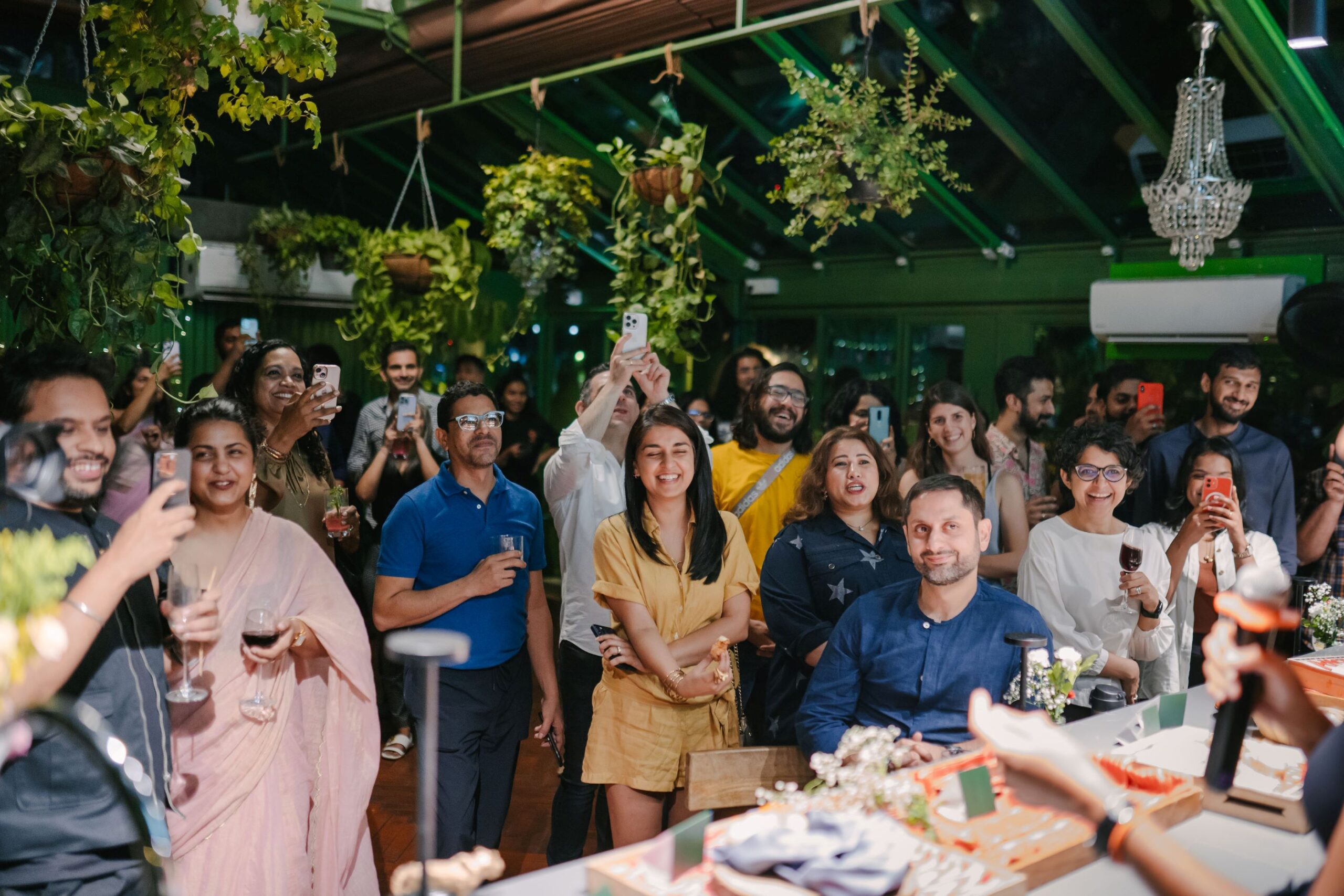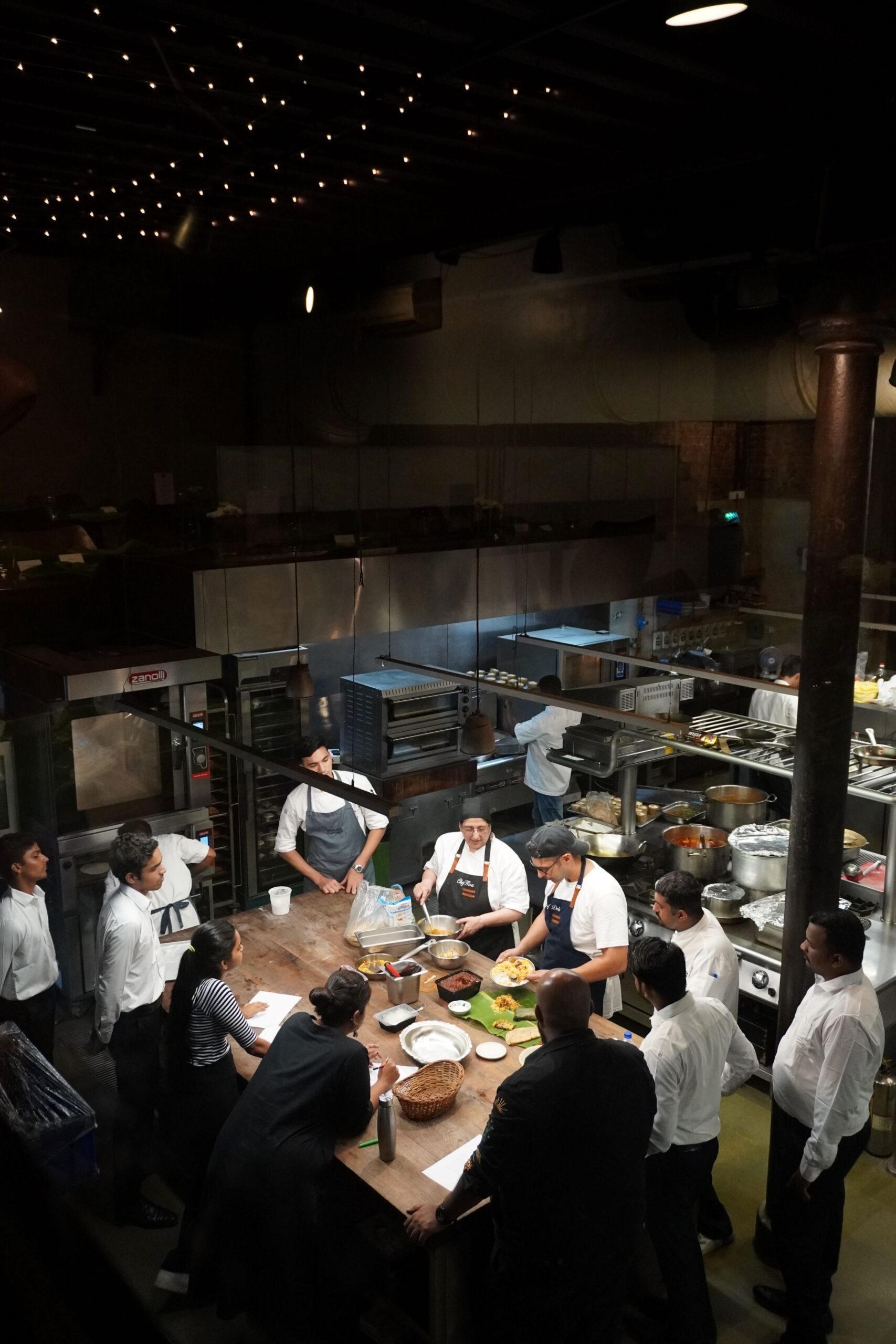A new set of spaces across India is redefining what it means to dine out by offering curated experiences that are distinctive, adventurous, thrilling, and unpredictable. Ishita Thakur reports.
A new kind of dining space is taking shape around urban India. It brings culture and community to food events, and promises a carefully curated, and brand new exciting experience every time we visit them. We only need to look toward The Conservatory in Bangalore, to Mag St Kitchen in Mumbai, and others across the country to see the shape of things to come.
I vividly recall my first experience at a curated pop-up meal. It was 2015, and I was a young, adventure-chasing Delhi girl with a party trick that involved making Negronis disappear. The thought of breaking bread with twelve complete strangers felt as novel as discovering an unmarked spot on a well-trodden map. The premise was simple yet electrifying – a select group of people carefully handpicked through the social network of the time (what we now fondly refer to as word of mouth), gathered for a one-of-a-kind dining experience. For Rs. 2500, an amount that felt princely then, we were treated to food and drinks at a restaurant that hadn’t even opened its doors to the public yet. More importantly, it brought together a tribe of food enthusiasts who lingered long after the last cocktail was poured.

If food is love, then spaces like The Conservatory, Magazine St Kitchen, and Delhi’s Indica are F&B’s Tinder – matching those keen and curious about all things culinary with chefs and kitchen heroes from across the spectrum of regional and international cuisines.
I am excited to report that a decade since the plates have turned. What was once exclusive is now accessible to anyone eager to explore new culinary horizons. And at the heart of these community-driven spaces is the new democracy of access. From chefs of Michelin-starred restaurants to grandmas serving heirloom recipes – bespoke F&B events today have both the space and platforms designed for them. Just ask Akhila Srinivas. “We recognised fairly quickly the appetite for curated experiences and food- and/or chef-led events and narratives,” says Srinivas, founder of The Conservatory in Bangalore, a ‘no-rules’ playground for chefs and diners hosting culinary events, workshops, and more. “Just like theaters and stadiums are built for artists and athletes, kitchens showcasing processes and people are key. Food as theater is our go-to expression.”



India’s growing appetite for experiential dining reflects a broader consumer mindset shift post the pandemic. A surge in demand for experimental dining, food festivals, and bespoke culinary businesses has led to an organic rise of dedicated spaces, equipped to host professional F&B events, especially in the larger metros. Influenced by global culinary trends and a desire for personalisation, consumers today are placing a higher value on experiences, and this is true for the middle to upper middle classes.
“We were one of the first to pioneer this kind of experience,” says Gauri Devidayal, one of the owners of Magazine St Kitchen, a 2,500-square-foot space in Mumbai that began as an office-cum-support kitchen in 2016. Today, it’s evolved into a full-fledged event, workshop, and kitchen-for-hire space. “In the beginning, our priority was building awareness around the brand and the space,” she says. “Back then, we could only bring in international chefs every six weeks due to high costs. Today, Magazine St.Kitchen is fully booked. There’s hardly a free spot.”

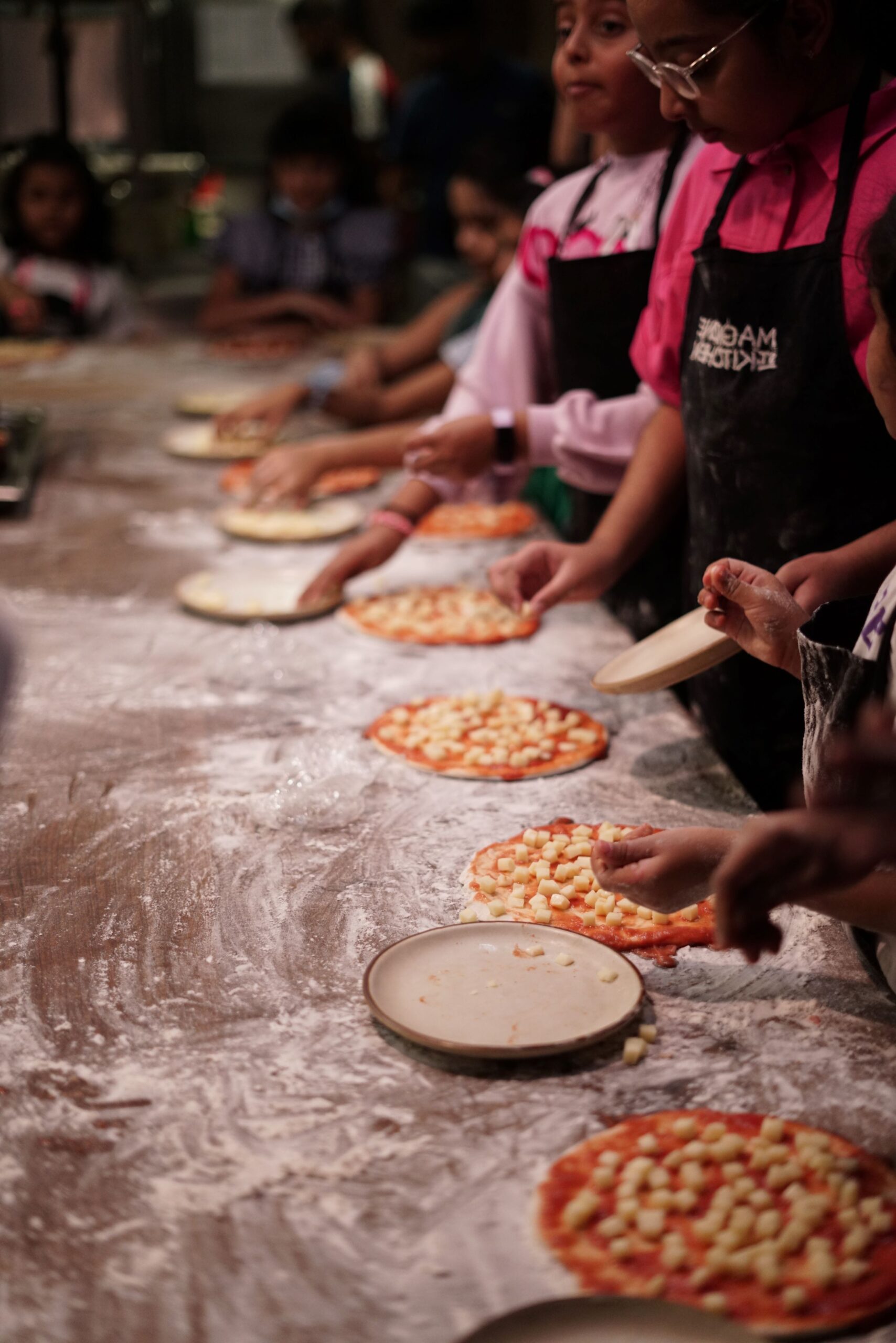
If food is love, then spaces like The Conservatory, Magazine St Kitchen, and Delhi’s Indica are F&B’s Tinder – matching those keen and curious about all things culinary with chefs and kitchen heroes from across the spectrum of regional and international cuisines.
My first taste of this matchmaking? A 30-seater dinner by Chef Amit Kumar, formerly of Belgium’s three-Michelin-starred Boury. The ten-course meal at Magazine St Kitchen was an unforgettable journey – every dish felt like a conversation with the chef, in an intimate, perfectly orchestrated setting. Diners’ personal interaction with the chef was a welcome departure from a typical dinner experience, with a bonus ringside view of Boury’s approach to food.
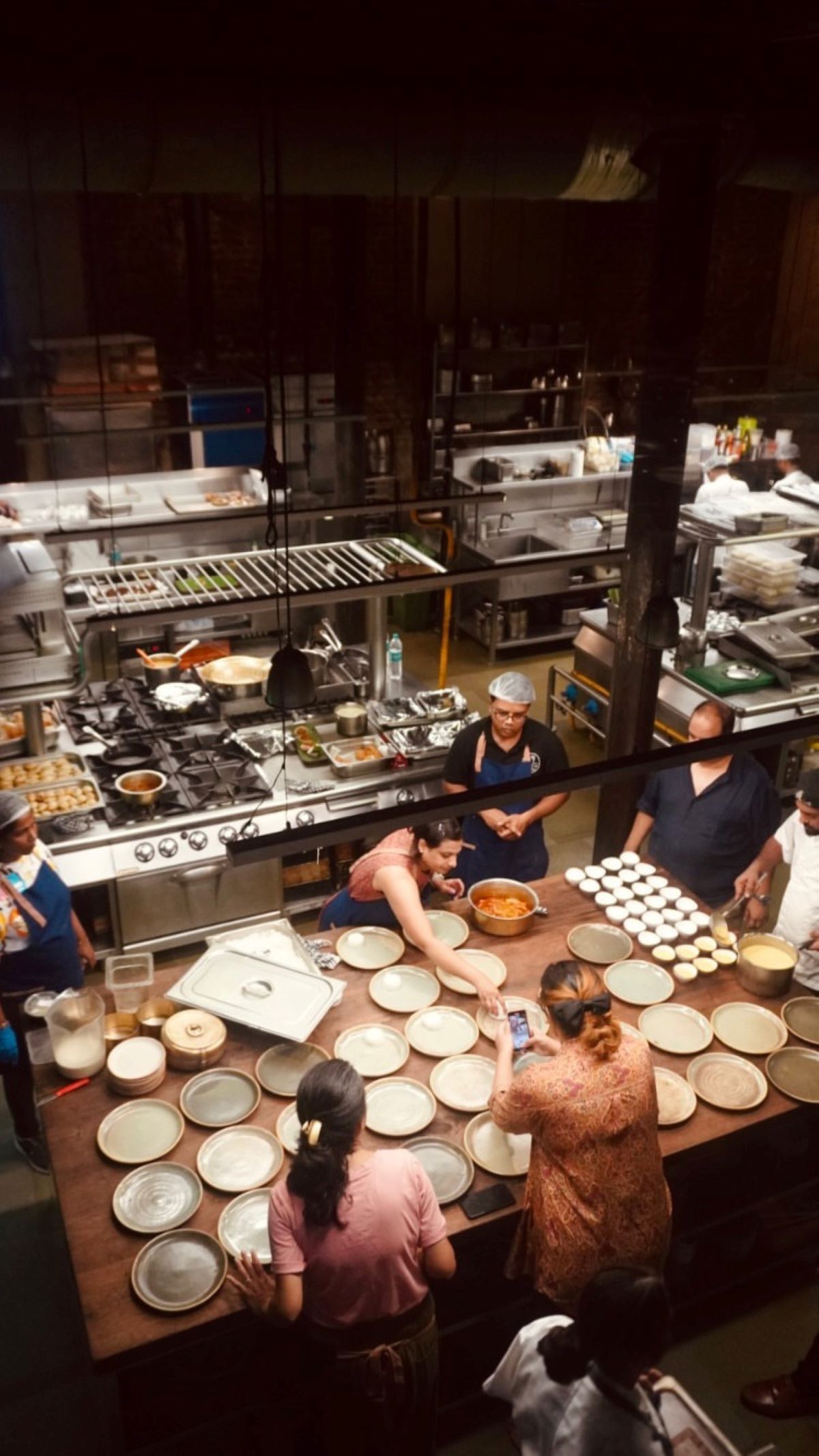
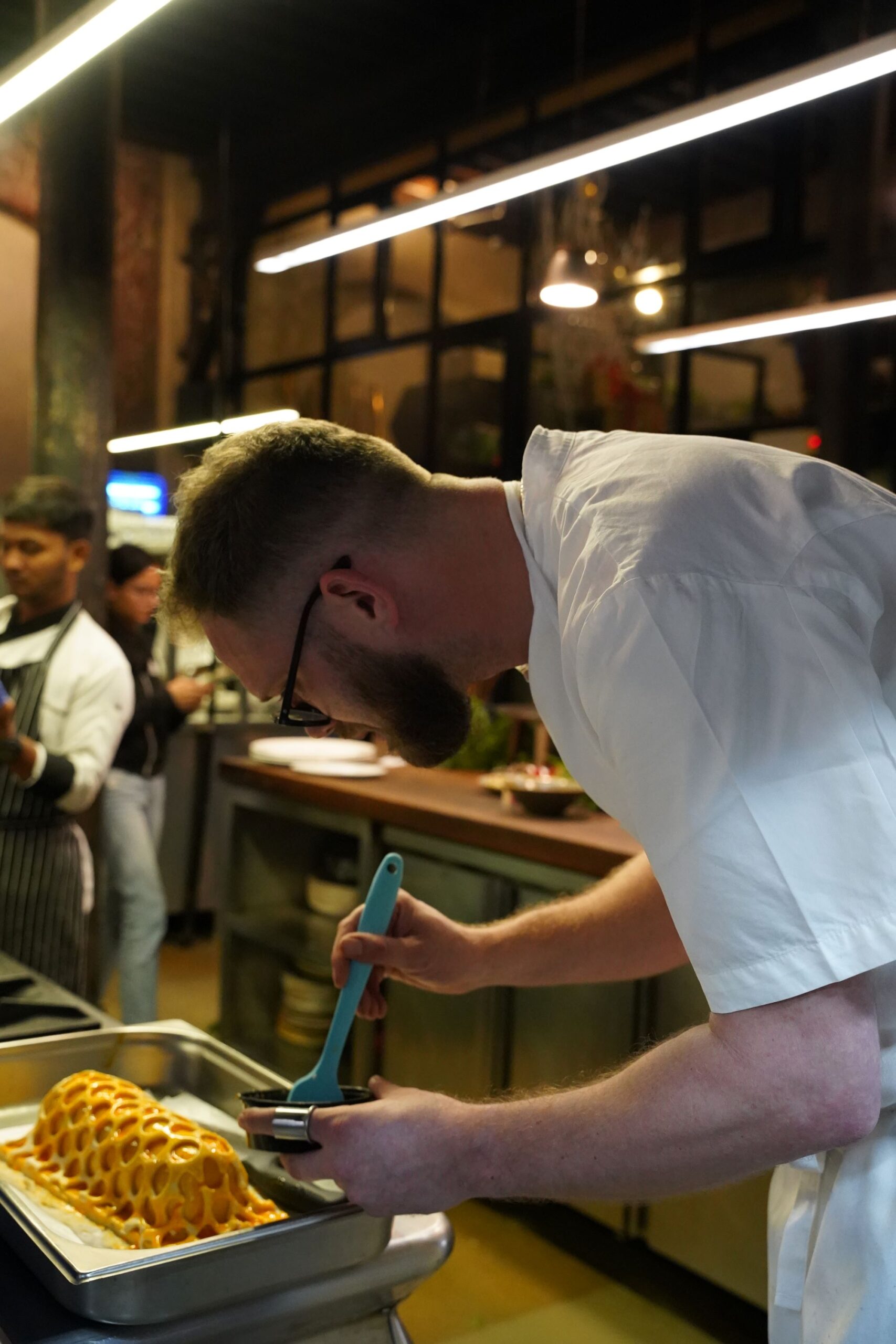
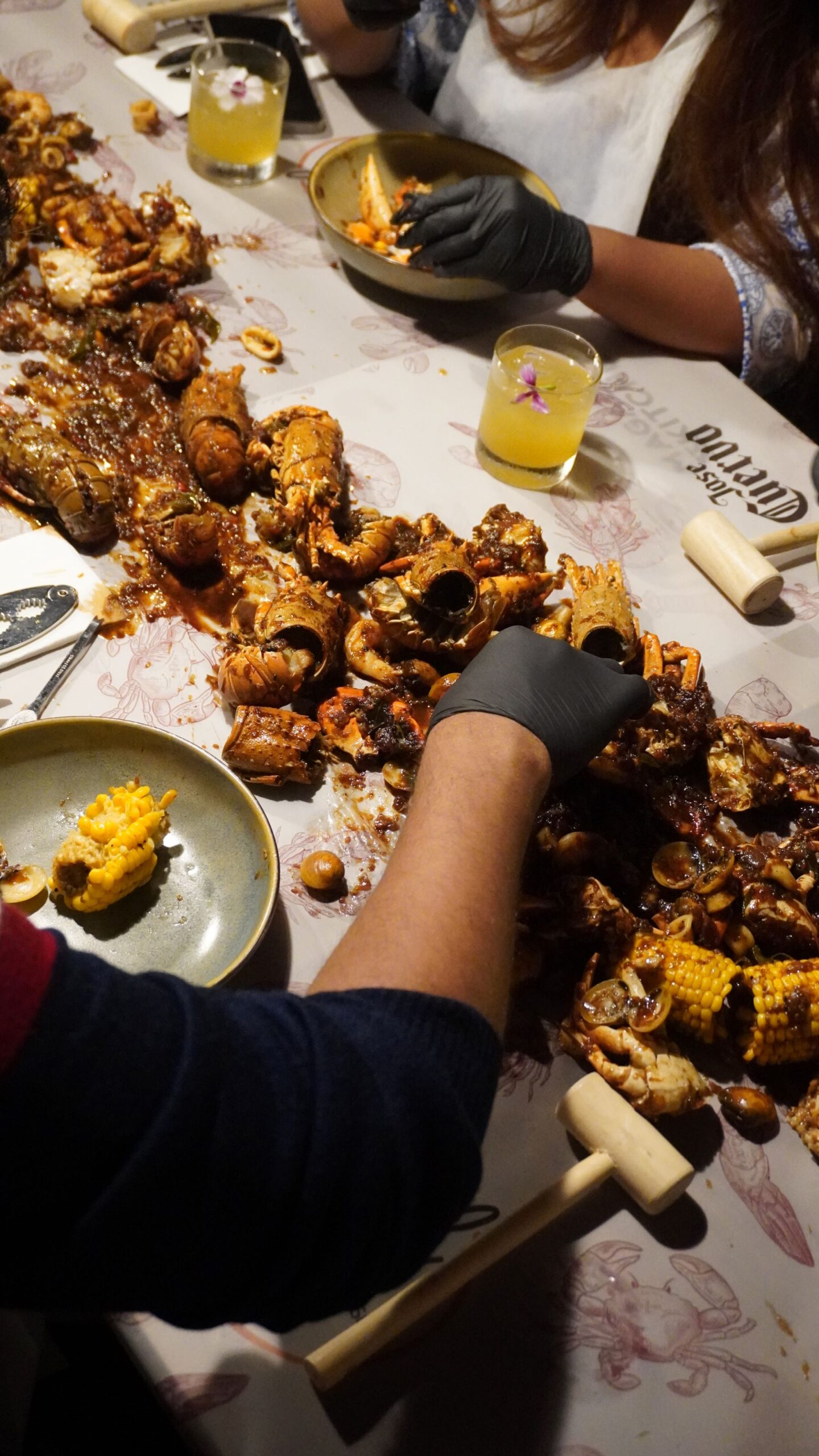
“It just cuts the commute,” says Nuzha Ebrahim, owner of Kuckeliku Breakfast House and a fellow pop-up aficionado (who has attended 30+ such events) “Running my restaurant keeps me busy, so I don’t find myself travelling much. It’s fantastic to have access to chefs from across the country or even abroad through these events. I am conscious about selecting events that would be value for money, but if the experience is highly desirable then the ticket price is secondary.” Nuzha’s own restaurant has recently begun hosting guest collaborations, embracing this growing pop-up culture.
What began as a niche offering is now a culinary movement led by spaces dedicated to the convergence of chefs, diners, food geeks and everyone in between to create a space where passion meets palate.
For chefs and culinary experts, spaces dedicated to pop-ups offer more than just a stage to display their culinary skills – they are revolutionising how regional and heritage cuisines are perceived and shared. Anuradha Medhora, founder of Charoli Foods, runs a delivery kitchen and a catering business focused on authentic Indian regional cuisine, particularly Madhya Pradesh. For her, pop-ups are more than just events; they’re a canvas for creative expression. “A space like this gives me the chance to put myself out there creatively and do what I love, which is reimagining traditional dishes in my way,” she says. “It’s also a great way to hone my skills and stay connected to my craft, knowing I’ve grown each time. And while I’m not a professionally trained chef, these pop-ups allow me to educate others about the cuisine I’m so passionate about. Oftentimes I meet guests who are just as geeky about the food as I am.”
But beyond passion, how do these businesses sustain themselves? Akhila from The Conservatory explains, “Every event is ticketed and operates on a profit-share model with the chefs. Our goal is to be operationally profitable, not necessarily aimed to maximise profits.” For Mumbai’s Magazine St Kitchen, self-sufficiency is central to their model. “We own the space, which reduces the pressure of rent,” says Devidayal. “But we look to subsidise events through partnerships with alcobev brands or even tourism boards. Wherever possible, we collaborate to make these experiences as accessible as possible, while ensuring we can cover costs.” This strategic blend of creativity melded with practical business models allows pop-up dining experiences to flourish across India.
As the last course is served and the glasses are cleared, it’s clear that pop-ups are no longer just a trend – they are a crucial ingredient in how we experience food today. What began as a niche offering is now a culinary movement led by spaces dedicated to the convergence of chefs, diners, food geeks, and everyone in between to create a space where passion meets the palate.
Akhila sums it up: “Meeting the people we do – chefs, collaborators, and teams has been a joy. Watching our team grow and make the space their own has been incredibly rewarding.” Whether it’s the charm of discovering regional gems or indulging in global flavours, these experiences are redefining how we connect over a meal. Devidayal reflects on her journey with Magazine St Kitchen, “As someone who doesn’t cook, I love how immersive this experience has become for me and for others – it is a whole new way to interact with the kitchen.”
For those of us who crave something beyond the ordinary, the future of dining looks deliciously unpredictable. I, for one, can’t wait to see what’s cooking next.
